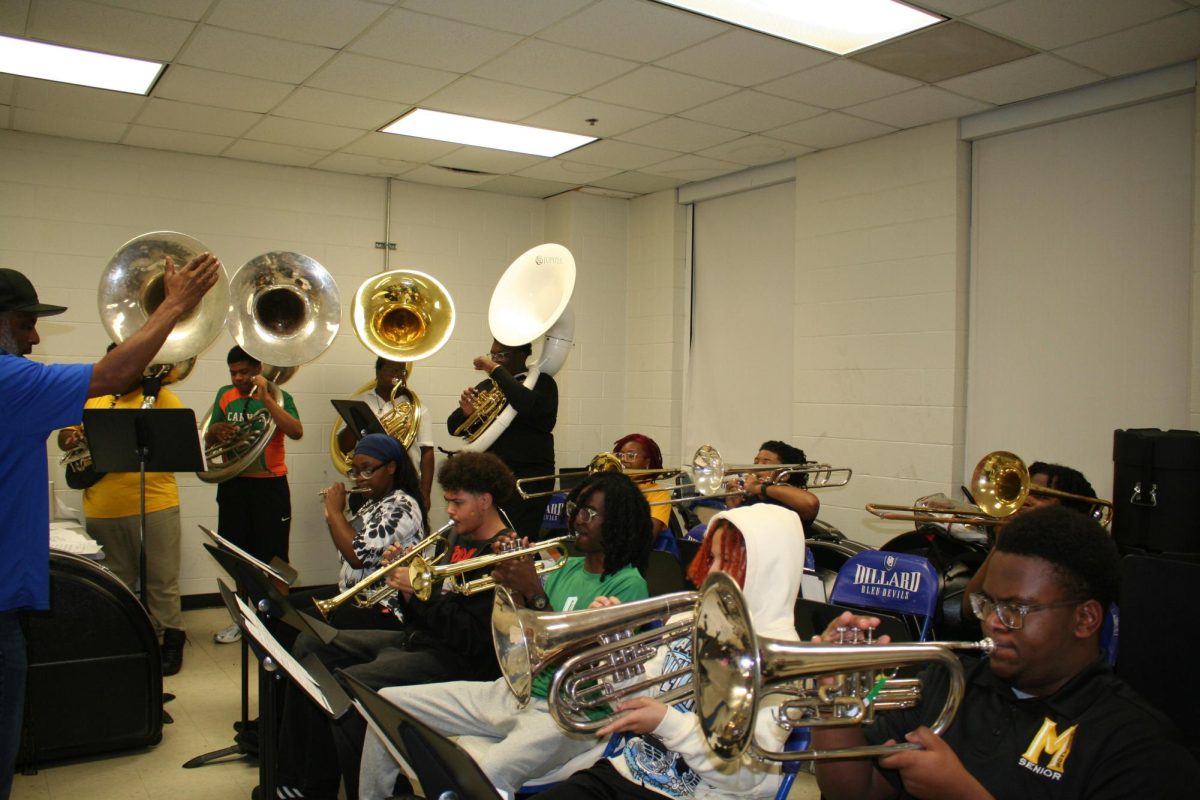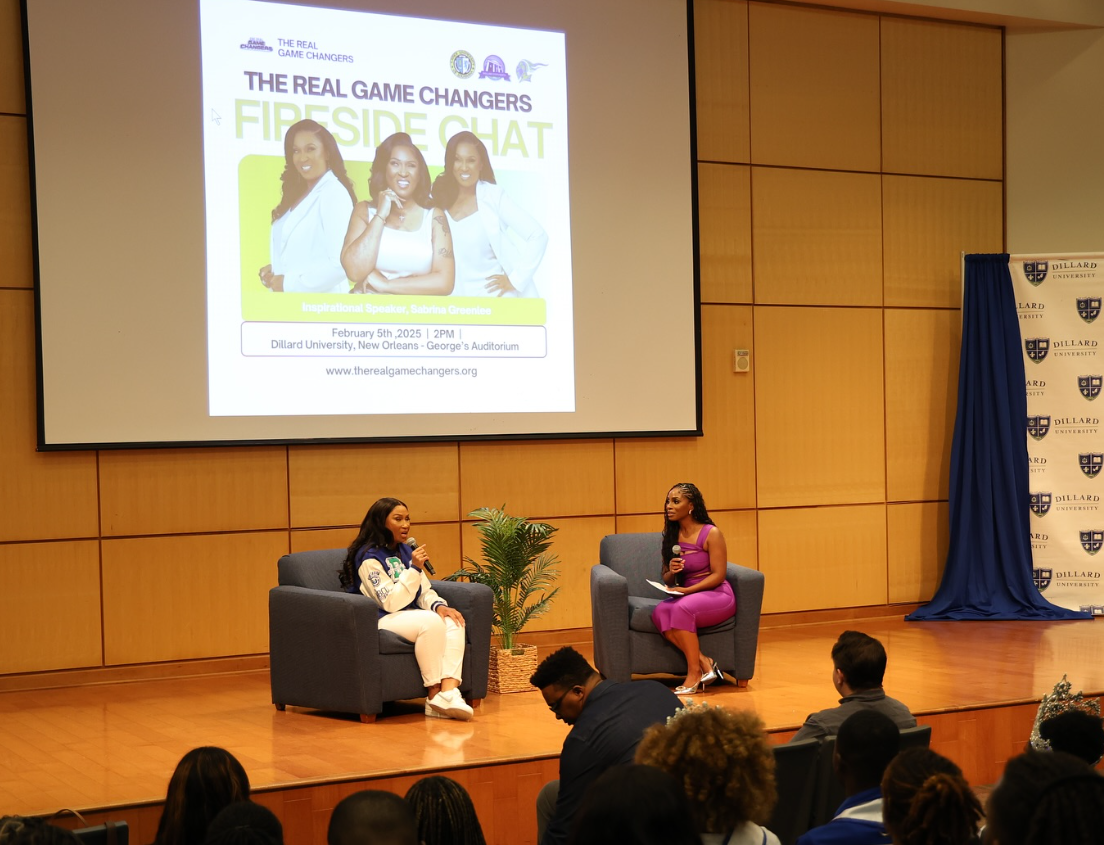Take a moment to put yourself in the life of someone who is less fortunate than you. Imagine you are a college student born and raised in New Orleans. You hear on the news that a terrible storm is coming. You can not bare leaving the only place you call home. As the storm passes, you are slowly losing the only person in your life that has ever mattered. It has been two years now and everyday of your life has been a struggle but it is your faith that keeps you going. It is your faith that gets you out of bed and sees you throughout your day. Through it all you strive to achieve a goal that at times you think is impossible. This are the stories of many people who are still coping with the pressures from the storm. Due to the storm, people lost their homes, cars, personal belongings and even friends and family. There are many faculty and students in the Dillard community still living in trailers or trying to find a program that can allocate the appropriate funds to rebuild their homes. There are many programs available to people still suffering from the affects of the storm.
United Way’s IDA Program
The United Way’s Individual Development Account program was established in New Orleans on July 1, 2007. The IDA is a new match savings project designed to help low income families save for and acquire a productive asset. The families can acquire either a home, the start up or expansion of an existing child care business, or a vehicle. Participants are to make regular deposits into a special savings account, an IDA. The IDA is a custodial account held jointly by the participant and the United Way at a partnering financial institution. The participant must be active in the program for five months before the funds can be issued to the closing agency or vendors. The participant will receive a 4 to 1 match on their saving. Those savings up to $2,000 will be matched up to $8,000 for a maximum total of $10,000 for a home, childcare purchase, or expansion. Those interested in a vehicle purchase will save $1,000 and be matched up to $4,000 for a maximum total of $5,000. “Most of the people that apply are living in poverty. They are barely making ends meet. Single parents can barely feed their children on their income going from pillow to post,” said Oydessa Payne, director of IDA. The participants are required to have a commitment to stay in the program until the saving goals are met. The applicant must deposit at least $25 a month. The applicants are required to attend financial literacy and asset specific trainings. Christine Herbert, a case management representative said that this is all very new for the program to her. “It is a great idea. We are excited about it,” said Herbert. “We hope that people are able to access their goals.”
The Road Home Program
The Road Home happens to be another program which allocates money to homeowners affected by the storm. Although the deadline has passed for this program many people were able to rebuild and fix homes that were damaged due to the storm. The program is the largest single housing recovery program in U.S history. The program, created to aid people in the rebuilding process, was formed by Gov. Kathleen Blanco. The requirements for the Road Home program are the following: The applicants must show that they owned and occupied the home as their main residence at the time of hurricane Katrina. The home had to be a single unit structure, double unit structure, or condominium. The property had to sustain at least $5,200 worth of damages. There are 184,613 people that applied for these funds. The allocated funds given to those applicants tare $8.35 billion that met all the requirements for this program. Kathy Hunter, a resident of New Orleans said that with the money she received from Road Home she was able to fix the damages. “I had just remodeled my home a month before the storm. I could not believe the incredible damage that had been done to my home,” said Hunter
Red Cross
The Red Cross also offers a service called Access to Health. After the hurricane some people found difficulty sleeping, eating, or concentrating at work or school. The program was created for those directly affected by hurricanes Katrina, Rita, or Wilma. The program is available regardless of residence insurance, or immigration status. Coverage is retroactive to Aug. 30, 2007 and will cover services received on or prior to September 2008. This program is an initiative of the Red Cross Recovery program. Many people say that the rebuilding process has been slow and devastating. However, the Federal Emergency Management Agency announced on Oct. 19 that it will give Orleans parish $754 million for infrastructure projects.




























